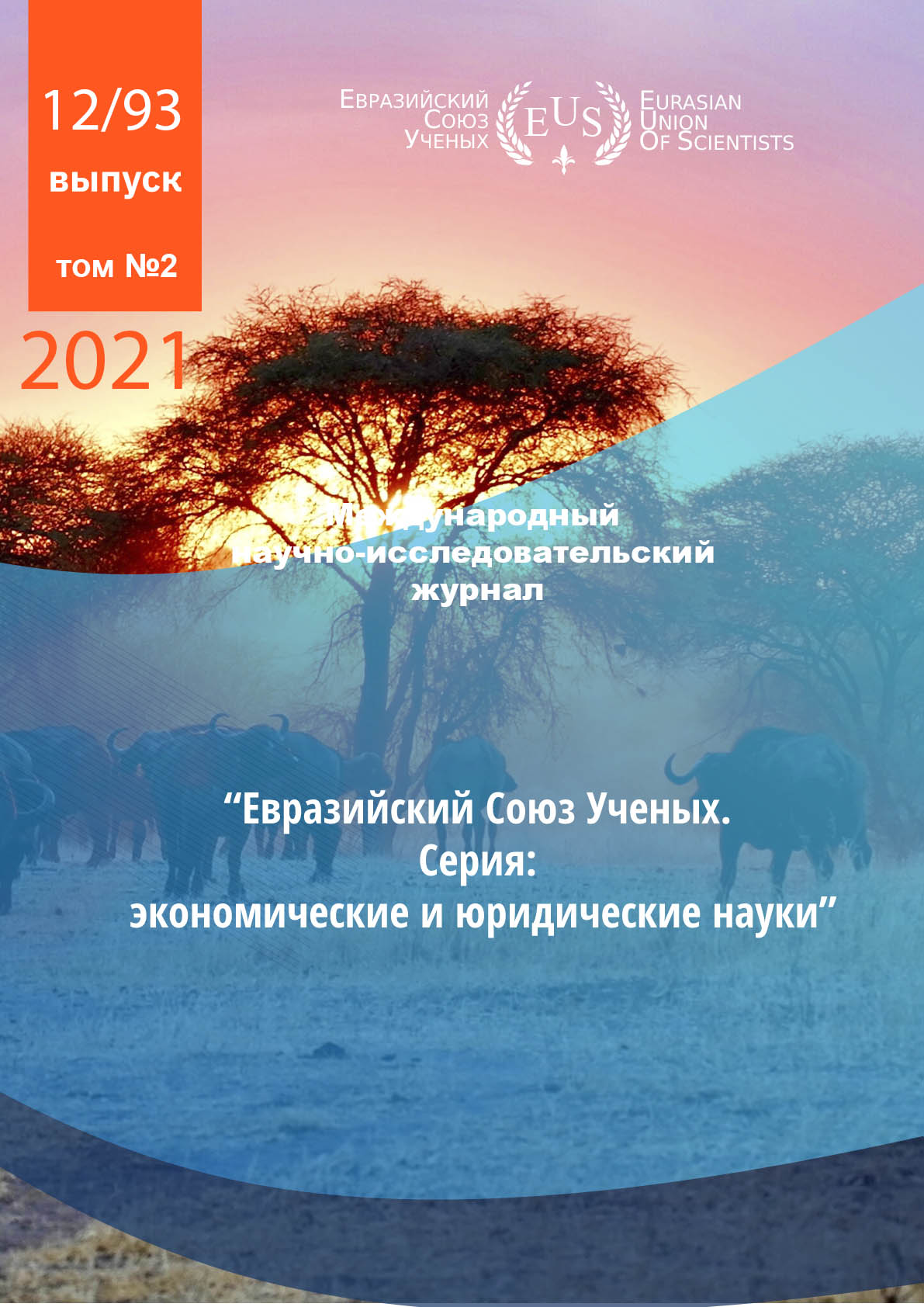PROBLEMS OF ENDOWMENT OF ARTIFICIAL INTELLIGENCE BY THE STATUS OF A LEGAL ENTITY
Abstract
The article considers the points of view concerning the recognition of artificial intelligence as a subject of law. The opinion is defended about the need to divide artificial intelligence into levels and endow in the future the property of legal personality of such of them, which goes beyond the algorithm embedded in it and develops new, previously unknown results of intellectual activity on the basis of self-learning and the accumulated array of information. Proposals are made concerning the ownership of property by a legal entity artificial intelligence, the definition of its powers, including in relation to the results of intellectual activity created, responsibility for the obligations assumed.
References
2. Borovskaja E. V., Davydova N A. Osnovy iskusstvennogo intellekta: uchebnoe posobie / E. V. Borovskaja, N. A. Davydova. 4- e izd. jelektron. 2020. https://www.rulit.me/data/programs/resources/pdf/Osnovy-iskusstvennogointellekta_RuLit_Me_643478.pdf
3. Vorob'eva I.V., Salahutdinov V.D. Problemy pravovogo regulirovanija iskusstvennogo intellekta / I.V. Vorob'eva, V.D. Salahutdinov // Malyshevskie chtenija – 2020. Nauka i obrazovanie: budushhee i celi ustojchivogo razvitija: materialy XVI mezhdunarodnoj nauchnoj konferencii, v 4 chastjah / pod red. A.V. Semenova. – M.: izd. ChOUVO «MU im. S.Ju. Vitte», 2020. Ch. 4. — C. 62-72
4. Gusarova N. F. Vvedenie v teoriju iskusstvennogo intellekta / N. F. Gusarova. SPb: Universitet ITMO, 2018. https://books.ifmo.ru/file/pdf/2356.pdf
5. Emel'janov-Jaroslavskij L.B. Intellektual'naja kvazibiologicheskaja sistema (Induktivnyj avtomat) / L.B. Emel'janovJaroslavskij. M.: Nauka, 1990. S. 112. http://www.aha.ru/~pvad/f0.htm (data obrashhenija: 21 dekabrja 2021 goda).
6. Laptev V.A. Ponjatie iskusstvennogo intellekta i juridicheskaja otvetstvennost' za ego rabotu / V.A. Laptev // Pravo. Zhurnal vysshej shkoly jekonomiki. - 2019. - № 2. - S.79-102.
7. Morhat P.M. Iskusstvennyj intellekt: pravovoj vzgljad /P.M. Morhat. M.: Buki Vedi, 2017. S. 257.
7. Ponkin I.V., Red'kina A.I. Iskusstvennyj intellekt s tochki zrenija prava / I.V. Ponkin, A.I. Red'kina // Vestnik Rossijskogo universiteta druzhby narodov. Serija: Juridicheskie nauki. T. 22. - 2018. - № 1. - S. 91-109.
8. Uzhov F.V. Iskusstvennyj intellekt kak sub#ekt prava. https://cyberleninka.ru/article/n/iskusstvennyyintellekt-kak-subekt-prava/viewer (data obrashhenija: 10 dekabrja 2021 goda).
9. Filipova I.A. Pravovoe regulirovanie iskusstvennogo intellekta: uchebnoe posobie /I.A. Filippova. Nizhnij Novgorod: Nizhegorodskij gosuniversitet, 2020. S. 90.
CC BY-ND
A work licensed in this way allows the following:
1. The freedom to use and perform the work: The licensee must be allowed to make any use, private or public, of the work.
2. The freedom to study the work and apply the information: The licensee must be allowed to examine the work and to use the knowledge gained from the work in any way. The license may not, for example, restrict "reverse engineering."
2. The freedom to redistribute copies: Copies may be sold, swapped or given away for free, in the same form as the original.







